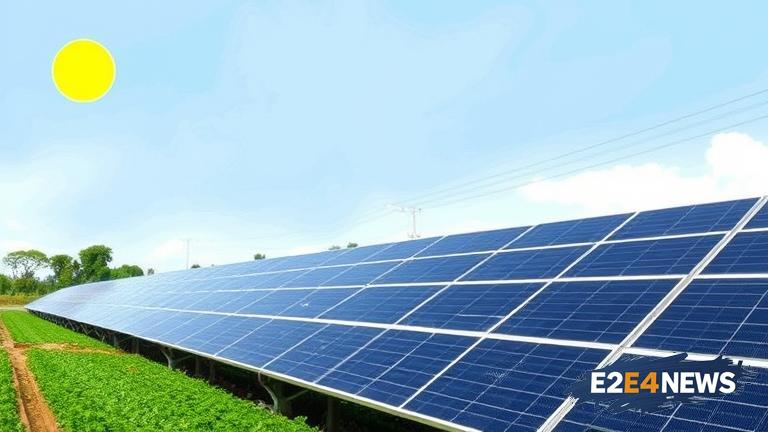In a groundbreaking move, Koraput has introduced an innovative solar farming project that integrates agriculture with renewable energy production. This pioneering initiative, known as agri-pv, aims to revolutionize the way farming is done in the region. By combining solar panels with crop cultivation, farmers can now generate electricity while simultaneously growing their crops. This innovative approach not only increases crop yields but also provides a sustainable source of renewable energy. The project has been met with enthusiasm from local farmers, who are eager to adopt this new technology. With the help of agri-pv, farmers can reduce their reliance on traditional fossil fuels and decrease their carbon footprint. The initiative is expected to have a significant impact on the local economy, creating new job opportunities and stimulating growth. Koraput’s solar farming project is being hailed as a model for sustainable agriculture and renewable energy production. The project’s success can be attributed to the collaboration between local farmers, government agencies, and private companies. The agri-pv system is designed to be efficient and cost-effective, making it an attractive option for farmers. The solar panels are installed in a way that allows crops to grow underneath, maximizing land use and reducing waste. The project has also led to the development of new farming techniques and technologies, further increasing crop yields and reducing water consumption. As the world grapples with the challenges of climate change, Koraput’s solar farming initiative offers a beacon of hope for a sustainable future. The project’s impact extends beyond the local community, serving as a model for other regions to follow. With its innovative approach to agriculture and renewable energy, Koraput is poised to become a leader in sustainable development. The project’s success has also sparked interest from international organizations and investors, who are eager to support and replicate the model. As the project continues to grow and expand, it is expected to have a profound impact on the environment, economy, and society. The integration of solar farming with agriculture has also led to the creation of new business opportunities, such as solar-powered irrigation systems and renewable energy-based farming equipment. The project has also highlighted the importance of community involvement and participation in sustainable development initiatives. Local farmers have been actively engaged in the project’s development and implementation, ensuring that their needs and concerns are addressed. The project’s success has also demonstrated the potential for solar farming to contribute to food security and sustainable agriculture. With the global population projected to reach 9 billion by 2050, innovative solutions like Koraput’s solar farming initiative are crucial for ensuring a sustainable food supply. The project’s impact on the environment has also been significant, reducing greenhouse gas emissions and promoting eco-friendly farming practices. As the world continues to urbanize and industrialize, Koraput’s solar farming initiative offers a unique approach to balancing economic growth with environmental sustainability. The project’s innovative approach to agriculture and renewable energy has also sparked interest from academic and research institutions, who are eager to study and replicate the model. Overall, Koraput’s solar farming initiative is a shining example of innovation and sustainability, offering a promising solution for a brighter, more sustainable future.





